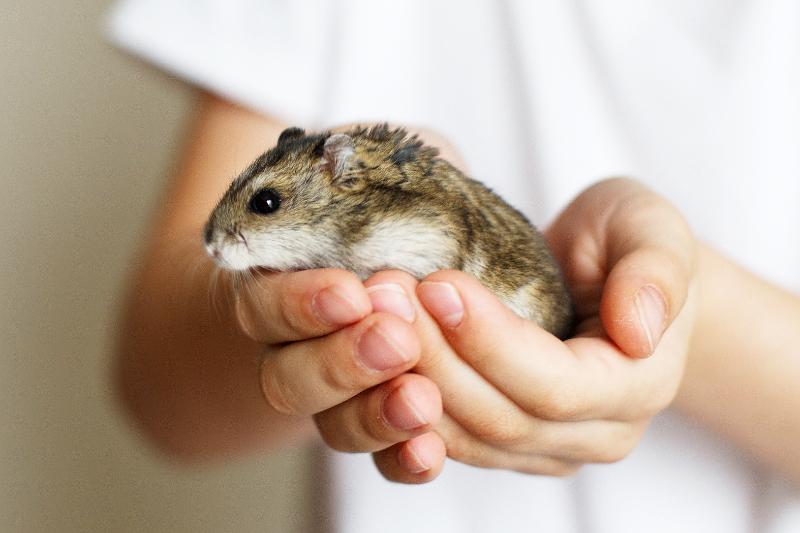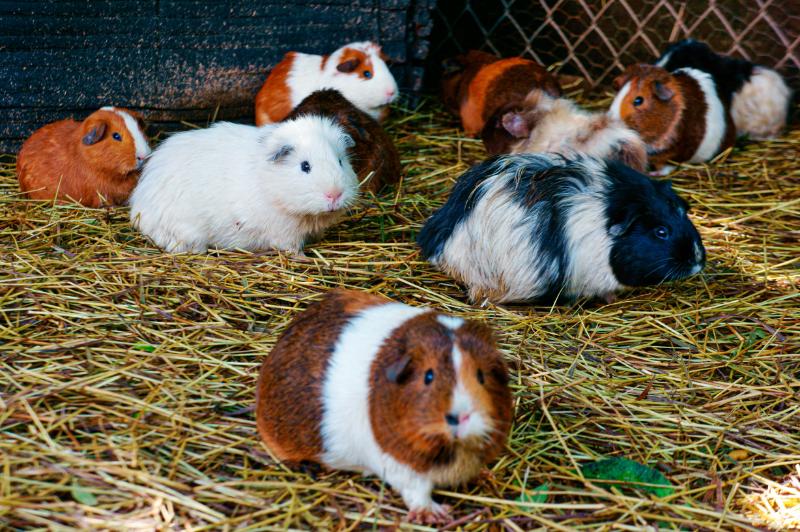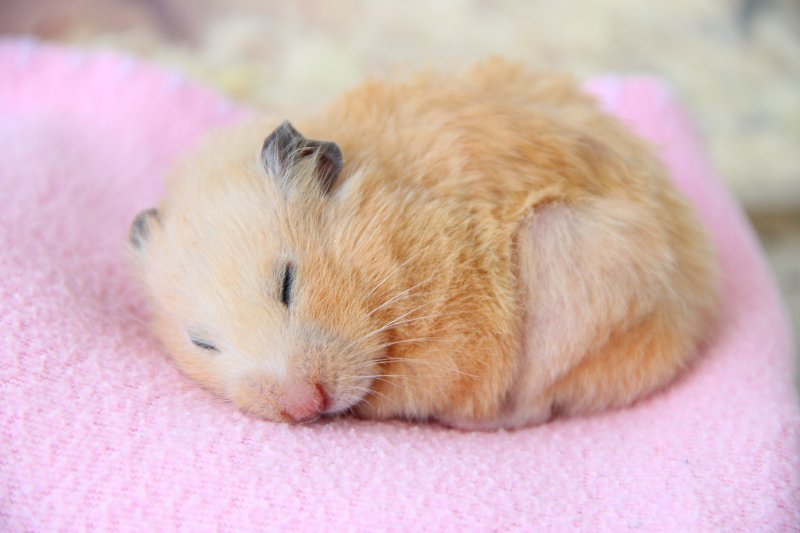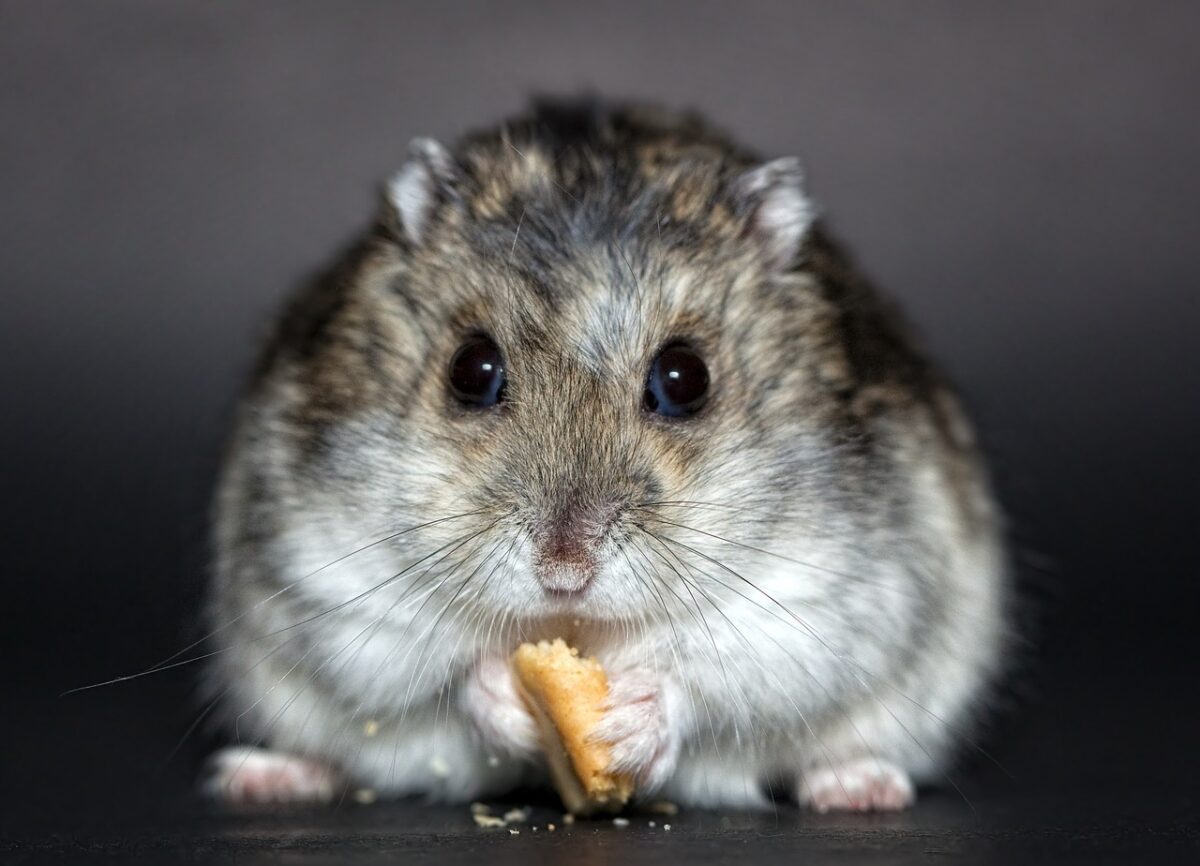Adored for their cuteness, hamsters can be a delightful addition to your home. But like any pet, they can become susceptible to certain health issues. Amongst various challenges pet owners face, hamster illnesses significantly stand out. If you want to ensure your little friend lives a long, healthy life, it’s best to understand the common ailments that hamsters might encounter.
Hamster ownership includes understanding various illnesses that can affect these small pets. Hamsters can succumb to various health issues, some of which can seriously impact their well-being. Recognizing the signs of illness in hamsters is crucial for owners, as early detection can greatly improve the chances of successful treatment. Symptoms can range from behavioral changes such as lethargy or aggression to physical signs like sneezing, diarrhea, or skin issues.

Prevention of illnesses in hamsters is as important as treatment. Maintaining a clean, stress-free environment and providing a nutritious diet are fundamental to preventing many common ailments. Regular monitoring for any changes in health or behavior can allow for prompt veterinary care, often a requisite for a hamster’s recovery. An informed hamster owner is empowered to detect and manage health problems and create a living space that minimizes the risk of these issues developing.
Though small in size, the health concerns in hamsters are significant, and an owner’s vigilance can make a considerable difference. Understanding the potential illnesses—ranging from the deadly wet tail to treatable conditions like mite infestations—enables owners to take actionable steps towards safeguarding their pet’s health. With proactive measures and knowledgeable care, hamster illnesses can be addressed, ensuring these beloved pets live full, healthy lives.
The Origins of Hamster Illnesses

Most prevalent hamster health problems stem from three primary concerns: improper nutrition, unsanitary living conditions, and exposure to erratic weather and temperature changes. Hamsters, while being resilient, can fall ill if these aspects aren’t monitored effectively.
Recognizing Signs of Illness
A hamster’s health can be discerned through vigilant observation of its physical condition and behavior. This vigilance is paramount as hamsters can adeptly conceal discomfort and disease.
Physical Symptoms
A healthy hamster’s skin should be free from dryness, lesions, and undue wetness, particularly around the tail area, where these signs may indicate ‘wet tail’ or diarrhea. Weight changes—loss or gain—may signal an underlying health issue.
Owners should be alert for any signs of dehydration, constipation, or a ruffled and unkempt coat, which could be a symptom of various ailments. Be watchful for discharge from the nose or eyes, sneezing, wheezing, hair loss, scratching, or any abnormalities like redness or a bad smell, often evidence of an infection or skin disorder.
Behavioral Changes
Hamsters displaying a loss of appetite or marked changes in dietary habits could be experiencing internal disharmony. Understand that a hamster’s inclination to hide sickness necessitates a keen eye for detecting behavioral anomalies.
Observe for decreased activity levels, signs of lethargy, or any distress indicating discomfort. Moreover, look out for respiratory distress that may manifest as sneezing, runny nose, or sticky eyes. Recognizing these changes promptly is critical for the timely treatment and wellbeing of the hamster.
Common Hamster Illnesses

Hamsters are susceptible to a variety of illnesses that can impact their quality of life. Understanding these common ailments can help pet owners identify and address issues promptly.
Digestive Disorders
In young hamsters, wet tail, also known as proliferative ileitis, is a frequently encountered intestinal disease characterized by diarrhoea. This condition is often spurred by stressors such as weaning, transportation, or changes in environment. Swift veterinary intervention is imperative as this bacterial infection, due to Lawsonia intracellularis, can quickly become life-threatening.
Respiratory Issues
Respiratory infections in hamsters are not uncommon and can manifest through symptoms like sneezing, nasal discharge, and labored breathing. These respiratory problems could stem from bacterial or viral infections and necessitate prompt and appropriate treatment to prevent escalation into more severe health complications.
Skin and Fur Conditions
Hamsters may experience skin diseases, including ringworm, a fungal infection, and other skin afflictions often related to parasite infestations or allergies. A veterinarian should evaluate indicators such as hair loss, flaking, or redness. Moreover, tumors and cancer also pose a risk to a hamster’s skin and overall health and require professional diagnosis.
Dental Problems
Dental care for hamsters is critical, as their teeth continuously grow. Overgrown teeth can lead to dental problems, impeding a hamster’s eating ability and causing significant discomfort. Regular monitoring and providing appropriate chew materials can help prevent this issue. In the event of dental irregularities, a vet may need to correct the tooth length under anesthesia.
Vet Care and Treatment

When a hamster falls ill, timely and proper veterinary care can make a critical difference in outcomes. A veterinarian will conduct a thorough evaluation to diagnose the problem, prescribe appropriate medications or surgery if necessary, and recommend supportive care to aid in the hamster’s recovery.
Diagnosis Procedures
Diagnosis begins with a veterinarian assessing the hamster’s clinical signs. Specific tests — such as serologic ELISA or IFA testing — may be necessary to identify viral infections, while a physical examination could reveal signs of abscesses, lumps, or physical trauma. In intestinal issues like intussusception, where a part of the intestine slides into an adjacent part, diagnostics might include imaging techniques such as X-rays.
Medication and Surgery
Medication forms the cornerstone of treatment for various hamster illnesses. Bacterial infections require antibiotics, whereas parasitic infestations by pinworms or tapeworms necessitate antiparasitic drugs. Surgical intervention might be indicated for removing sizable abscesses or tumors, or to correct severe cases of intussusception. A veterinarian must supervise all treatments as improper medication can lead to further complications.
Supportive Care
Supportive care is essential for a sick hamster’s recovery. It includes maintaining a clean and stress-free environment to prevent diseases like Wet Tail, a condition marked by severe diarrhea. A veterinarian might advise isolation of the sick animal to minimize stress and recommend thermoregulation strategies, like keeping the habitat warm in case of a cold. Adequate hydration and nutrition are also pivotal, especially if the hamster is suffering from digestive disturbances.
Preventive Measures

Ensuring the health and wellness of hamsters involves a proactive approach centered on proper nutrition, maintaining their habitat, and regular health assessments. Adherence to these preventive practices is pivotal for avoiding common ailments that can afflict these small pets.
Nutrition and Diet
A hamster’s diet should be balanced and formulated to meet their specific nutritional requirements. Essentials include:
- Seeds and Grains: Offer as part of a commercially prepared mix.
- Protein: Supplement with occasional bits of boiled egg or cooked chicken.
- Fresh Vegetables: Provide a limited amount for vitamins and minerals.
- Fresh Water: Access to clean water is non-negotiable; check and replenish daily.
Note: Continuous overfeeding and giving high-sugar or fatty foods can lead to health issues.
Habitat Maintenance
Creating a clean and secure environment is crucial for a hamster’s health. Key practices include:
- Regular Cleaning: Refresh bedding at least once weekly; remove soiled spots daily.
- Proper Ventilation: Circulate fresh air to dissuade the growth of harmful bacteria.
- Parasite Control: The occurrence of fur mites or other parasitic infestations can lead to allergic dermatitis—which requires immediate attention.
Hint: Preventing mites involves regularly washing the habitat and providing dust-free bedding.
Regular Health Checks
Consistent observation and veterinary care detect issues early, increasing the chances of successful treatment. Important points are:
- Observation: Regularly inspect your hamster for changes in behavior, appearance, or appetite.
- Annual Vet Visits: A yearly check-up is vital for catching diseases such as the Lawsonia intracellularis-induced wet tail.
Advice: Early signs of illness may be subtle—vigilance is key to recognizing problems promptly.
Potential Threats to Hamster Health

A noticeable loss of fur can be an indicator of numerous hamster illnesses. This loss can occur due to skin allergies, dietary deficiencies, or fungal infections like mange and ringworm.
Consequences of Fur Loss
Fur loss might seem minor, but it can escalate rapidly and jeopardize your hamster’s well-being. The loss can affect the hamster’s ability to maintain a healthy internal temperature, leading to respiratory problems, forced hibernation, and, in extreme cases, death. Thus, regular monitoring of your hamster’s activities and appearance is crucial. Any changes should warrant immediate action, involving veterinary attention and medications.
See Related: When Hamster Wet Tail Strikes
Diet-Related Hamster Illnesses

Improper diets can also lead to a series of health issues. Along with fur loss, they manifest as reduced energy and a lack of luster in your pet’s eyes. In severe cases, they may also lead to your hamster losing weight and seeming lower in spirits. Here are some crucial elements of a balanced hamster diet:
- Fresh fruits and vegetables: Remember to slice these finely and remove them from the cage before they spoil or cause mold.
- Dairy products: These can be particularly beneficial if your hamster is a female and may need to nurse or provide extra nutrition to her children.
See Related: Exploring the Fascinating World of Hamster Behavior
Overlooking the Weather: A Mistake
Constant fluctuations in temperature also pose a multitude of potential hamster illnesses. Breezes and drafts can result in your pet dealing with colds, which can be fatal. Remember that your hamster can catch a cold from you, so handle your pet with caution if you’re feeling under the weather.
Other potential disorders include cancer, wet tail disease, eye problems, and mites. Keeping an eye out for indications of these conditions can ensure that your hamster enjoys a full, healthy life with you.